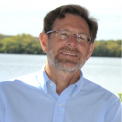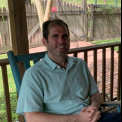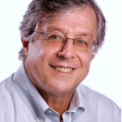Events Calendar View
-
CSP Lunch Seminar
Mar 9, 2021
Advances in Gas and Dust Numerical Methods and Their Applications to Ring-Shepherding by Planets
-
Departmental Colloquium
Mar 11, 2021
Moire Superpotentials and Quantum Calligraphy of Single Photon Emitters in van der Waals Heterostructures
Single photon emitters (SPEs), or quantum emitters, are key components in a wide range of nascent quantum-based technologies. A solid state host offers many advantages for realization of a functional system, but creation and placement of SPEs are difficult to control. We describe here a novel paradigm for encoding strain into 2D materials to create and deterministically place SPEs in arbitrary locations with nanometer-scale precision [1]. We demonstrate the direct writing of SPEs in 2D semiconductors based on a materials platform consisting of a WSe2 monolayer on a deformable substrate using an atomic force microscope nano-indentation process. This quantum calligraphy allows deterministic placement and real time design of arbitrary patterns of SPEs for facile coupling with photonic waveguides, cavities and plasmonic structures.
The weak interlayer bonding in van der Waals heterostructures (vdWh) enables one to rotate the layers at arbitrary azimuthal angles. For transition metal dichalcogenide vdWh, twist angle has been treated solely through the use of rigid-lattice moiré patterns. No atomic reconstruction has been observed to date, although reconstruction can be expected to have a significant impact on all measured properties, and its existence will fundamentally change our understanding of such systems. Here we demonstrate via conductive AFM and TEM that vdWh of MoSe2/WSe2 and MoS2/WS2 undergo significant atomic level reconstruction at twist angles ≤ 1° leading to discrete commensurate domains divided by narrow domain walls [2], rather than a smoothly varying rigid-lattice moiré pattern as has been assumed in prior work. We show that this occurs because the energy gained from adopting low energy vertical stacking configurations is larger than the accompanying strain energy [3]. Such reconstruction impacts both the local conductivity and the optical properties.
About the Speaker
Berend T. Jonker is the Senior Scientist for Magnetoelectronic Materials in the Materials Science & Technology Division at the Naval Research Laboratory, Washington, DC. His current research interests include spintronics, 2D materials, and topological materials. Dr. Jonker is a Fellow of the American Physical Society (APS), the American Association for the Advancement of Science (AAAS), and of the American Vacuum Science Society (AVS). He is the recipient of the Meritorious Presidential Rank Award, the NRL Hulburt Award, the Sigma Xi Award for Pure Science, several NRL Tech Transfer Awards, the Dolores M. Etter Navy Scientist Award, and others. He has served as chair for the APS Topical Group on Magnetism, and for the AVS Magnetic Interfaces Division. Dr. Jonker obtained his Ph.D. in solid state physics from the University of Maryland in 1983. He has published over 270 articles in refereed journals, 5 book chapters, co-authored 17 patents, and presented over 140 invited lectures.
-
CSP Lunch Seminar
Mar 23, 2021
Oxygen vacancy formation on SnO2 (110) and (101) surfaces: A combined DFT/Monte Carlo study
-
Departmental Colloquium
Mar 25, 2021
Quantum Entanglement: Applications in Communication and Cryptography
Quantum entanglement is a key phenomenon that separates the classical and quantum theories of information. In this talk, I will begin by introducing the notion of entanglement and discuss its applications, beginning with fundamental protocols like teleportation, super-dense coding, and the CHSH game. Then I will progress to more sophisticated topics like various communication capacities of quantum channels and highlight the role of entanglement in each of them. Key references include https://arxiv.org/abs/1106.1445 and https://arxiv.org/abs/2011.04672.
About the Speaker
Mark M. Wilde is an Associate Professor in the Department of Physics and Astronomy and the Center for Computation and Technology at Louisiana State University. He is a recipient of the Career Development Award from the US National Science Foundation, co-recipient of the 2018 AHP-Birkhauser Prize from the journal Annales Henri Poincare, and Associate Editor for Quantum Information Theory at IEEE Transactions on Information Theory and New Journal of Physics. His current research interests are in quantum Shannon theory, quantum optical communication, quantum computational complexity theory, and quantum error correction.
-
Special Colloquium
Apr 1, 2021
2021 Chhabra-Landau Lecture: Machine Learning Based Ab-initio Molecular Dynamics
Computational cost severely limits the range of ab initio molecular dynamics simulations. Machine learning techniques are rapidly changing this state of affairs. Deep neural networks, that learn the interatomic potential energy surface from ab-initio data, make possible simulations with quantum mechanical accuracy at the cost of empirical force fields. These approaches can model not only atomistic dynamics but also dielectric response properties measured in experiments. I will discuss, in particular, the deep potential method developed at Princeton. In combination with incremental learning techniques, this approach makes possible to construct, with minimal learning cost, reactive potentials that are accurate over a vast range of thermodynamic conditions, such as the pressure and temperature regimes underlying molecular and ionic phases of water. The methodology will be illustrated with applications to some classic problems in physical chemistry.
About the Speaker
Roberto Car is the Ralph W. Dornte Professor in Chemistry at Princeton University, and Professor of Chemistry in the Princeton Institute for the Science and Technology of Materials. In 2016, Dr. Car was elected as a member of the National Academy of Sciences for his distinguished achievements in scientific research. Among his many awards he has received the A. Rahman Prize of the American Physical Society and the Dirac Medal and Prize of the International Centre for Theoretical Physics.
Learn more about Dr. Roberto Car in our recent news feature: https://www.physast.uga.edu/blogs/news/posts/2021-chhabra-landau-lecture-announced
-
CSP Lunch Seminar
Apr 6, 2021
Isomer Enumeration Using Quantum Computers
Page 108 of 121, showing 6 records out of 723 total, starting on record 643, ending on 648




